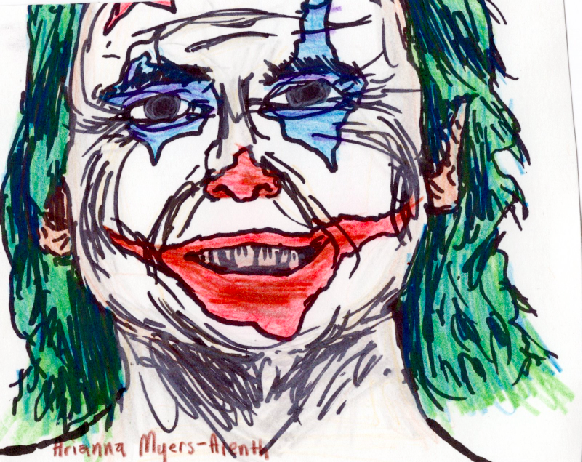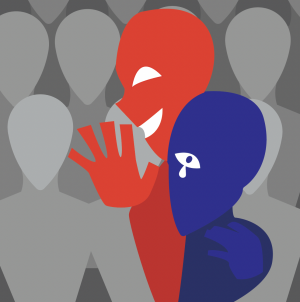‘Joker’ poorly represents mental health
December 5, 2019
Is it just me, or is it getting crazier out there? The credits began to roll, and I was left flabbergasted. I had just witnessed a spectacle that left my jaw on the floor.
We truly live in a society in which the Joker is depicted as a hero. The self-titled movie directed by Todd Phillips starring the infamous clown from DC comics as an anti-hero is now the highest-grossing R-rated movie ever.
Many people my age really liked the movie. Some even go to say that it’s a true reflection of society. This is heavily contrasted with critics, who have negative thoughts regarding the film. They say the film is boring and that it can’t focus on a theme.
I personally enjoyed the movie. The production was fantastic, the plot was great, and even the soundtrack was fun. What I liked the most though was Joaquin Phoenix’s killer performance, which will likely receive an Oscar nomination.
But there is one GIANT problem I have with the movie, and it’s quite a dangerous one.
The movie gets everything wrong about mental illness.
The movie makes a terrible connection between mental illness and violence. It’s clear that the Joker is diagnosed with some kind of mental illness – as evident of the fact that he records about it in his journal writing, takes medication, and meets with social workers – but the movie doesn’t make any attempt to distinguish what that mental illness is, which opens the door for any mental illness to be interpreted. The movie even makes it explicitly clear that his mental illnesses are the reasoning behind his violence, which is simply wrong.
No matter what that mental illness might be though, it is still important to recognize that mental illness doesn’t guarantee violence whatsoever. Studies show that the general population is just as violent as people with mental illnesses. Many of these studies even go on to say that people with mental illnesses are more susceptible to being the victims of violence.
These messages from the movie can create a stigma against mental illness that can be very damaging and long-lasting. It creates neglect that could lead to a society that does not care for people with mental illness that the film is depicting.
This has literally happened with a movie before. The 1975 film One Flew Over the Cuckoo’s Nest damaged an entire generation’s perspective on mental illness. A study conducted by psychologist George Domino in 1983 shows that college students who saw the film saw mental illness in a more negative light. Many psychiatrists have even linked this stigma to an uptick in electroconvulsive therapy.
I do agree with the Joker movie’s attempt to say that society should be providing more help for those with mental illness, but it doesn’t seem like the film makes any attempt to make that its central message and its focus on how a mental illness causes a clown to become a serial killer seriously weakens this argument.
These stigmas have been used to justify preventing gun control. Many far-right proponents have argued that mental illness is what attributes to gun violence the most, and that that gun control would not do anything to stop that, despite the fact that most shootings are committed by people without mental illness. The Joker gives this a justification and teaches many people my age that this is true.
Mental illness does not make a supervillain, and I think we’ve had enough of these jokes. These stigmas are incredibly harmful. It’s important we don’t allow this comic book movie to change our generation’s perspective.
















